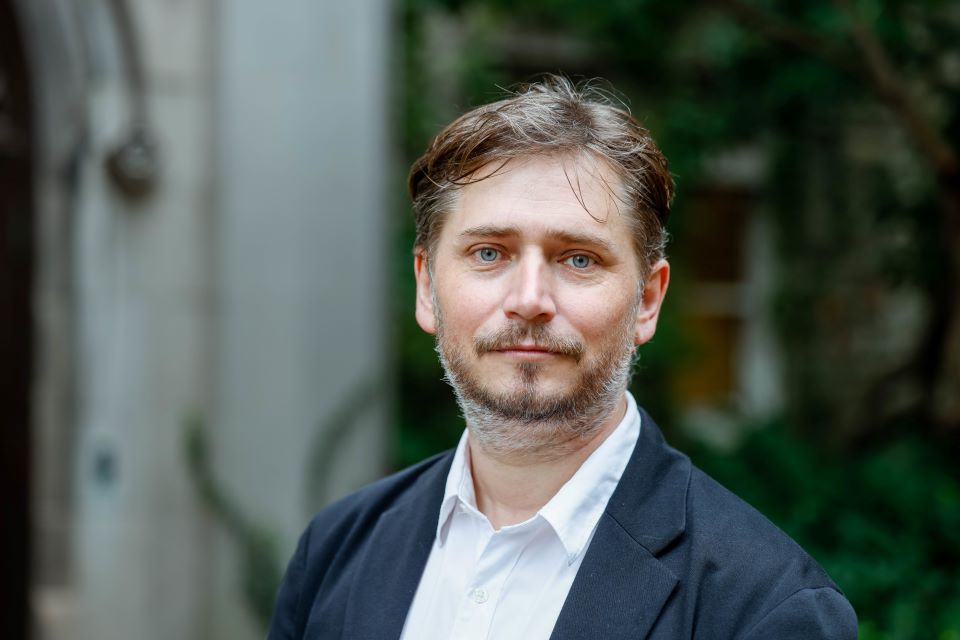SLU History Professor Named Fellow at The Newberry Library for 2023-24
Maggie Rotermund
Senior Media Relations Specialist
maggie.rotermund@slu.edu
314-977-8018
Reserved for members of the media.
ST. LOUIS – Fabien Montcher, Ph.D., assistant professor of history at Saint Louis University, has been named a fellow at The Newberry Library in Chicago for 2023-24. The Newberry typically awards 10 long-term fellowships each year.
The residential fellowship at one of Chicago’s most historic cultural institutions begins in the fall.
Montcher works on the social history of knowledge and politics across the early modern Iberian worlds. His project is titled “On Natural Sovereignty: A History of the Early-Modern Citrus Craze across the Iberian Worlds (1400s-1700s).”
This project is connected to the writing of a book exploring the global and overlapping histories of diplomacy, global commerce, colonialism, botany, agriculture and food in Renaissance empires through the lens of fruit production, exchange, transformation, and consumption.
“While collaborating on political, food, and environmental history projects with my dear undergraduate and graduate students at SLU, and when writing my previous book at the Institute for Advanced Study (Princeton) and at the Huntington Library (Pasadena), I knew that the Newberry was one of these unique nurseries where time is given to scholars who need to be absorbed in research to create original thinking,” Montcher said.
As a residential fellow, Montcher will spend next academic year immersed in the Newberry collections. The fellowships allow researchers the time, space and community to pursue innovative and ground-breaking projects.
“The Newberry offers this rare privilege, but it is also a place where one tests ideas with a great scholarly community and a much larger audience. The Newberry is one of the great public-facing institution of this country,” he said. “The quality of their holdings, especially books and manuscripts produced across the global territories of the Spanish and Portuguese empires between the fifteenth and eighteenth centuries, motivated me to apply for this fellowship.”
The Newberry considers research projects that utilize the Library’s collection to advance scholarship in the humanities. Applications are reviewed by an interdisciplinary committee of scholars from a broad spectrum of fields and periods.
Successful applicants are those who can articulate their project and its significance in terms that are clear to those unfamiliar with their field of study. Montcher’s project application was deemed “most exceptional” by the review committee.
While in Chicago, Montcher will work with the library’s collections of rare books and manuscripts dedicated to the global history of the Spanish and Portuguese empires, as well as Renaissance travel narratives, natural histories, and botany treaties.
Montcher will also participate in a scholarly community organized around the Newberry Fellows’ Seminar, the Newberry Colloquium.
Before heading to Chicago, Montcher will co-lead a 2023 NEH Institute for Higher Education Faculty on the campus of Saint Louis University.
“Global Geographies of Knowledge: Creating, Representing, and Commodifying Ideas Across Early Modern Places, 1400–1800,” is a four-week residential institute for 30 higher education faculty on knowledge and globalization in the early modern period. The project is led by Claire Gilbert, Ph.D., associate professor of history; Charles ‘Hal’ Parker, Ph.D., professor of history; and Montcher.
The Institute is one of 37 summer seminars, institutes and workshops for K-12 schoolteachers and college faculty funded in the NEH’s third round of grants for the fiscal year 2022.


















